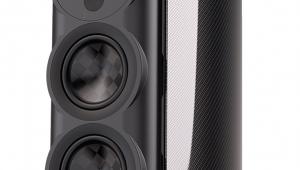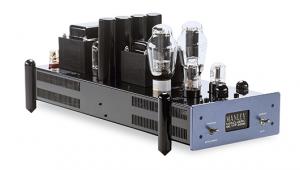R.E.M. Document Page 2
![]()
The enigmatic presence of previous R.E.M. albums had become a more confident and ebullient focal point, and however oblique some of his lyrics might have been, they were dotted with lines that could be sung loud and lustily by arena audiences. 'The One I Love' was particularly suited to blast out from radios and stadia alike: it had the word 'love' in the title, Stipe's rallying cry of 'Fire' in the central hook, and even a guitar solo – considered rather uncool among post-punk purists in 1987.
R.E.M.'s method of dressing punk sentiments in poppier clothes had stepped up a notch. Just as infectious was their single 'It's The End Of The World As We Know It (And I Feel Fine)', taken from the LP – this was a punky anthem that was always going to fill indie disco dancefloors.
Double Agents
They would delve deeper into the ironic pop song milieu with 'Stand' and 'Pop Song 1989' from the follow-up album Green, once again acting as double agents, nodding to the chart-phobic independent scene while also courting the mainstream audience sneered at by many of their more purist peers. And what 'It's The End Of The World…' did better than those tunes was employ a sense of humour not always evident in the band's previous work. The song is a stream-of-consciousness list in the style Bob Dylan blueprinted on 'Subterranean Homesick Blues', with a scattershot surrealism at work that's mischievous.
'There's a lot of whimsy, humour and irony in Michael's writing that we don't really get credit for', Mike Mills told The Globe And Mail on the release of the album. 'I think people miss that a lot of the stuff we do is partly tongue-in-cheek.'
![]()
Strange Brew
The blend between angular art-rock and hooky accessibility continues elsewhere. The album's opening track, 'Finest Worksong', would be the third single from the album, yet on first listen it hardly sounds like the stuff of commercial gold. Yet the insistent refrain of 'Your finest hour...' plants seeds in the listener's head that don't budge easily.
A spiky cover of Wire's 'Strange' also blends sweet and sour, with Mike Mills' backing vocals once more emerging as a vital part of the group's sound as the song seems to reflect the band's love-hate relationship with their burgeoning popularity ('Michael's nervous and the lights are bright' being repurposed from the original song's 'Joey's nervous...')
![]()
Elsewhere, the off-beam polemical thrust of the frontman's lyrics remained noticeable on 'Exhuming McCarthy' and 'Welcome To The Occupation', both taking aim at the knee-jerk patriotism they saw being promoted around them in Reagan's America. 'I always thought side one was a mini-rock opera about how America was in 1987', recalled Buck in 2002.
Yet the odd lyrics seemed only to make the songs more infectious. 'You're sharpening stones, walking on coals, to improve your business acumen', Stipe sang over impish plucked strings. And quite what kind of 'Disturbance At The Heron House' was occurring is open to debate, but you'll keep wanting to hear its twanging guitar motif, just as the brooding, semi-psychedelic riff of 'Oddfellows Local 151' would keep haunting your consciousness.
All of which would help make Document a pivotal album not just in the history of R.E.M. but the story of alternative rock, as it gave them their first US Top 10 single and first platinum-selling album. It would beat a path that many others would follow in the years to come, from local scenes and indie labels, scratchy punk-informed production and narrow ambitions, to major labels and global success, with no limits to their creative horizons and notions of 'selling out' sounding laughably irrelevant.
Document set R.E.M. on the way to becoming what was at that time a rare thing: a multi-million-selling band whose credibility was never in question, and whose popularity rarely seemed to breed contempt.

















































